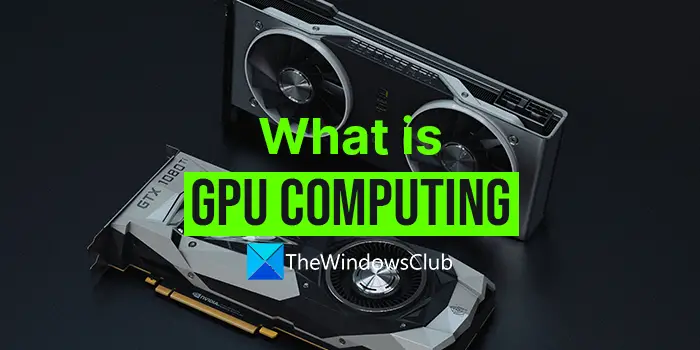What is GPU Computing?
A Graphics Processing Unit or GPU in short is used as a co-processor along with the CPU for heavy tasks and computing. Generally, GPUs are used to accelerate or speed up memory-intensive tasks such as image or video processing, rendering, or gaming. GPU has become a necessity to perform such tasks as it has numerous cores and superior memory bandwidth. Not only is GPU used in memory-intensive tasks, but they are gradually used in performing scientific computing jobs. It become suitable for a wide range of computing tasks that use high CPU and GPU since 2006. GPU computing has steadily grown in terms of performance and has never slowed down in its performance for computing tasks. GPU offloads some of the memory or compute-intensive tasks from the CPU and accelerates the tasks. GPU along with CPU performing intensive tasks at greater speeds is known as heterogeneous or hybrid computing.
What is GPU computing used for?
Usually, GPUs are used to accelerate graphic processing tasks such as an image or video editing, or gaming. GPUs have immense power to help the CPU in performing intensive computing tasks and it is now used to do such tasks. Along with the usage of GPU in games, and content creation like video editing, or graphics, it is widely used in Machine Learning. In Machine Learning and AI, GPU is primarily used in processing heavy tasks such as image recognition, etc. Read: Best free tools to benchmark CPU and GPU on Windows computer
What are the advantages of GPU computing?
The advantages of GPU are beyond words. As said earlier, GPU has the capability of performing heavy computing tasks by offloading intense computing from the CPU and working with it parallelly, and delivering results faster. The lag-free games we play, the extreme quality videos or images we see, the AI services we use which deliver results in real-time are the advantages of GPU computing. In simple words, GPU computing is all about speed and parallel computing. So, whenever there is a need to perform a computing task that requires more CPU and time, GPU can help perform it fast and in less time. The main advantages of GPU are parallel computing, machine learning, multitasking, analytics, data science, Bitcoin mining, etc.
What is GPU in a computer in simple words?
The tasks we do on our PC are performed by the CPU mostly. There are some tasks that require more computing ability or resources like playing heavy games, or image or video editing. Then, the need for GPU or Graphics Processing Unit arises. It works with the CPU in parallel and performs heavy tasks making the CPU concentrate on tasks that require less memory or computing power. Read: What is GPU Sag, and How to keep GPU from sagging on PC
When should I use GPU in computing?
You can use GPU computing when you are doing heavy computing works such as Machine Learning, or implementing Artificial intelligence. Even if you do not have Machine Learning or AI tasks, you can use GPU computing while playing heavy games on your computer, or doing graphics processing such as image editing or video rendering. GPU computing speeds up the response of the programs and saves you time. Read: Things to know before buying an external GPU for your PC
What is the difference between CPU and GPU?
Central Processing Units (CPU) and Graphic Processing Units (GPU) are both critical computing engines. CPU has lesser cores as compared to GPU which makes the computing power more in GPU. CPU can perform several tasks at a time, but the time it takes is more than GPU. Read: How to check the GPU Temperature in Windows.

